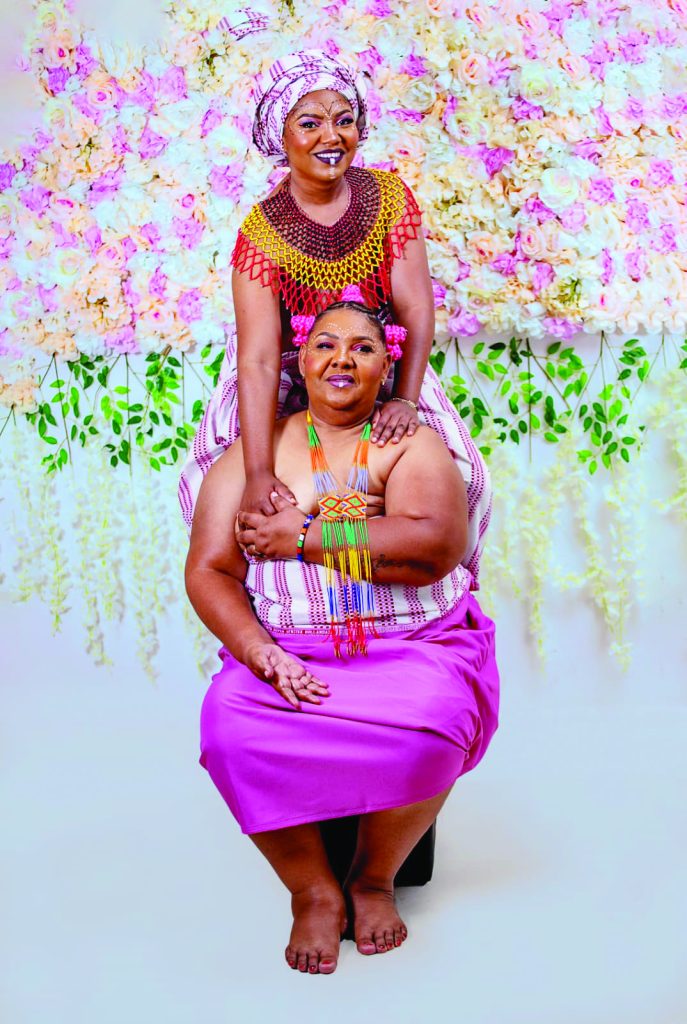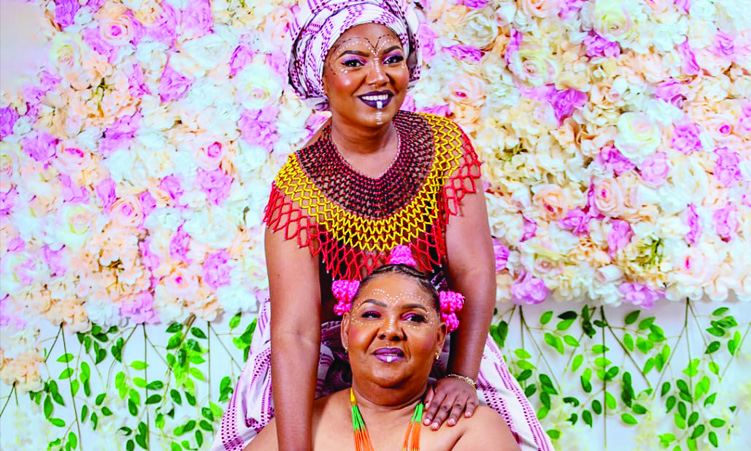“The hardest part about my diagnosis was finding out that my daughter had breast cancer too.”
Alda Rodriguez (57), who was diagnosed with breast cancer 19 years ago when she was 37, says she was shocked when her daughter, 29-year-old Alexandra Rodriguez, was diagnosed with the same type of cancer in 2022.
Alexandra, the mother of a new baby girl herself, is hoping the disease will not be passed on to her child.
For Alda, who hails from Tsumeb, beating the disease became her top priority as she wanted to show her daughter that cancer could be defeated.
The mother of six recounts her experience of not giving up in 2015, when her breast cancer progressed from stage two to stage four and she was told she only had five months to live.
“I needed 17 chemotherapy sessions, but I was only given three due to the limited resources. The type of cancer I had had a rare chance of survival, so priority was given to patients with higher survival odds,” she says.
Alda, who would travel from Tsumeb to Windhoek for treatment, says she sold two houses to pay for her own chemotherapy treatment, and even flew to Brazil for treatment after she was informed that the oncology centre could not provide her more treatment, as it cost the government N$25 000.

“I am a testament that even if you are told you have five years to live, you can defeat this disease. I take tablets every day.
I wanted to show my daughter that this is just like any other disease,” she says.
Alda says she has been living with cancer for 19 years by following the doctor’s advice, taking her medication daily, eating a balanced diet and exercising daily.
“I wanted to show my daughter that if you are positive, you can beat it. I am living with stage four breast cancer because I didn’t accept that death sentence,” she says.
Alexandra has had her breast removed to stop the disease from progressing.
After her diagnosis, Alexandra says her mother supported her every step of the way, even when she had to leave school and lost her job.
“It was a difficult time, but I decided to stay strong for my daughter, just as my mother was strong for me,” she told The Namibian in an interview last week.
Alexandra is now saving money for a breast reconstruction surgery and wants to demonstrate resilience to her young daughter.
“I want to show my daughter that I didn’t let cancer win. This disease doesn’t define you, even when I lost my breast, it’s not the end of the world,” she added.
Alexandra said she encourages her siblings, friends and family members to examine themselves daily.
She said her daughter is still young, but she hopes to be an example to her when she grows up.
Although breast cancer is considered a lifestyle disease, it can also be passed on through genes, such as in the case of the Rodriguez family.
According to the Namibian Oncology Centre (NOC), men and women with a family history of breast cancer have a heightened risk of developing the disease.
Approximately 60% of women with the BRCA1 or BRCA2 gene mutations face an increased risk of breast cancer.
For men, 0.2% to 1.2% with a BRCA1 mutation and 1.8% to 7.1% with a BRCA2 mutation may develop breast cancer by age 70.
BRCA1 and BRCA2 are genes that produce proteins that repair damaged genetic material. However, changes in these genes can increase the risk of breast cancer.
NOC spokesperson Tracy Schickerling emphasises the importance of early detection.
“There is a strong risk associated with family history, especially among women with a first-degree relative diagnosed before age 50.”
She says those with a family history of breast and ovarian cancers may benefit from BRCA testing, frequent screenings, or risk-reducing surgeries, like bilateral mastectomies.
A healthy lifestyle, such as avoiding smoking and excessive alcohol, maintaining a balanced diet, and exercising at least 150 minutes per week can also reduce breast cancer risk.
“When detected early in the localised stage, the five-year relative survival rate is 99%,” Schickerling says.
Early detection includes monthly breast self-exams and regular screenings, such as clinical breast exams, mammograms, or ultrasounds.
Stay informed with The Namibian – your source for credible journalism. Get in-depth reporting and opinions for
only N$85 a month. Invest in journalism, invest in democracy –
Subscribe Now!






